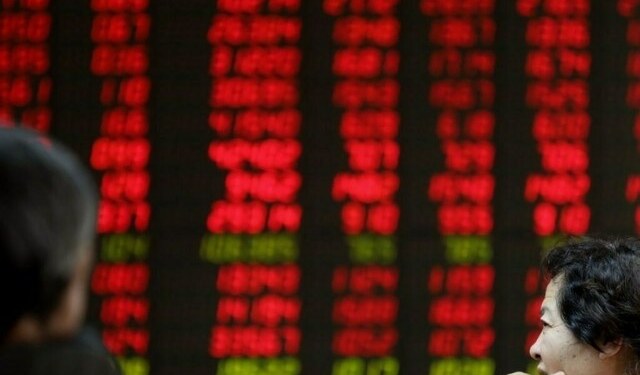By Joseph Nasr
BERLIN (Reuters) – Sentiment among German manufacturers plunged by its largest amount since the bankruptcy of Lehman Brothers in 2008, a leading survey showed on Tuesday, deepening concerns about the health of Europe’s largest economy.
The monthly survey of business morale from the Munich-based Ifo economic institute sent the euro to a three-week low against the dollar and reinforced expectations that the European Central Bank will further loosen monetary policy next month.
Carsten Brzeski, an economist at ING-Diba, called the Ifo report a “wake-up call” for the German economy, which has looked increasingly vulnerable as a slowdown in emerging countries like China has taken hold, unsettling global financial markets.
The Ifo’s headline business climate index fell to 105.7 in February from 107.3 last month to reach its lowest level since December 2014. The drop was fuelled by eroding expectations of the business outlook over the next half year.
This was particularly acute in manufacturing sector, where the outlook plunged by its largest amount since November 2008, two months after the bankruptcy of U.S. investment bank Lehman Brothers shook markets and triggered a global economic crisis.
“The majority of companies were pessimistic about their business outlook for the first time in over six months,” Ifo President Hans-Werner Sinn said in a statement. “German businesses expressed growing concern, especially in manufacturing.”
Ifo economist Klaus Wohlrabe told Reuters that a forecast for 2016 German economic growth of 1.9 percent, published in December, would need to be revised down given the deteriorating outlook.
“The industrial sector fears that it will go through a downturn. For the overall economy we expect a slowdown,” he said.
German companies have been relying on robust domestic demand and the strength of the U.S. economy to offset falling exports to China, Brazil and other emerging markets.
But Brzeski said lower oil prices were denting U.S. growth prospects and that it would no longer be the “strong safety net” for German exports and industry that it was last year.
Earlier on Tuesday, data showed that the German economy grew by a steady 0.3 percent in the fourth quarter, driven partly by higher public spending on refugees and investment.
Germany is spending billions of euros on housing, integrating and finding work for a record number of refugees fleeing conflicts and poverty in the Middle East and elsewhere. At the same time, record-high employment, rising wages, low inflation, and cheaper gasoline have boosted private spending.
But economists doubt that higher household and state spending will continue to offset a decline in trade in the long term.
BayernLB economist Stefan Kipar said there was considerable evidence suggesting the economy would be knocked off its recovery path.
“The dampening effect that economic weakness in some important markets is having on the German economy seems too great for that at the moment.”
(Additional reporting by Michelle Martin and Caroline Copley; Editing by Noah Barkin and Dominic Evans)


























